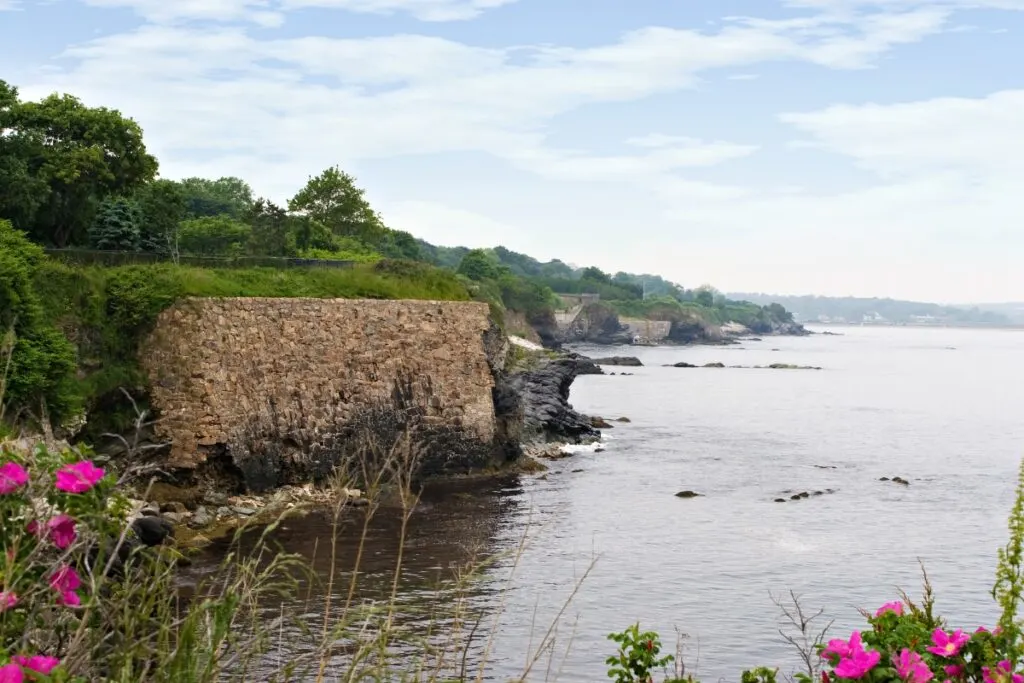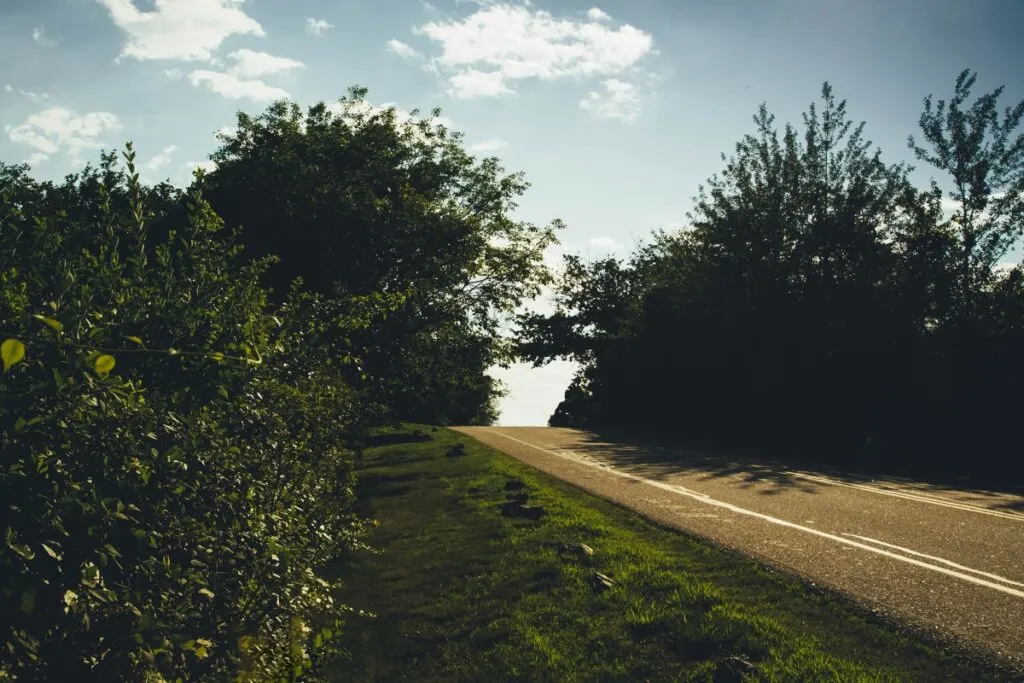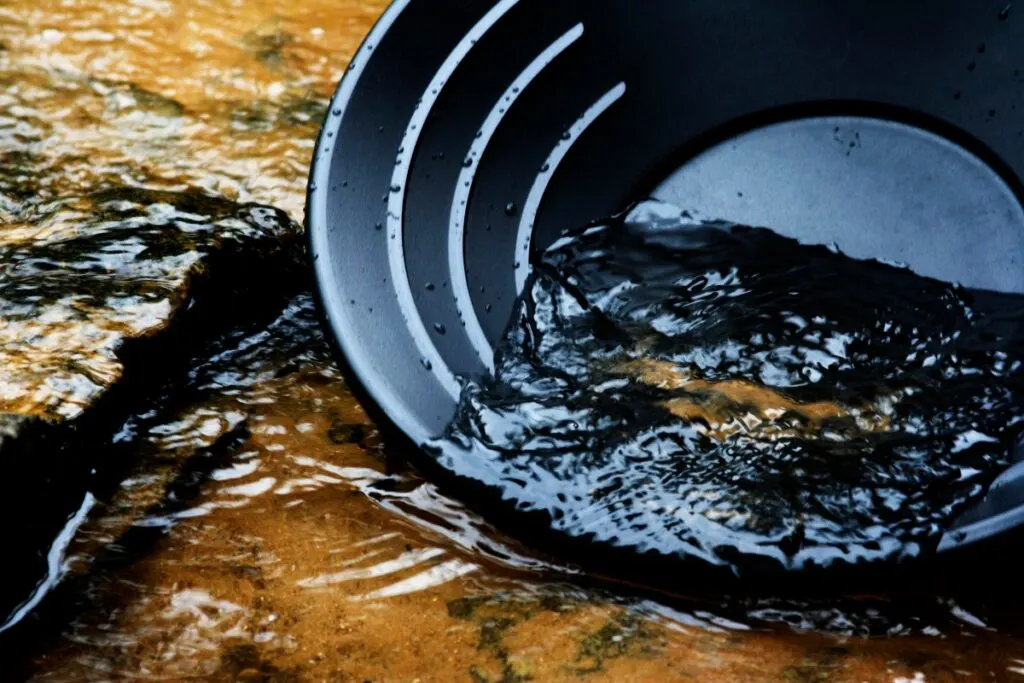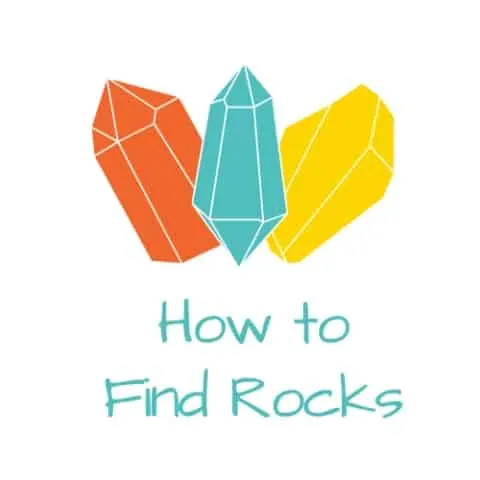As an Amazon Associate, I earn from qualifying purchases with no additional costs for you.
Gold prospecting in Rhode Island isn’t all about getting rich quickly. It’s about immersing oneself in nature, learning about the geological history of the land, and connecting with people who share the same passion for exploration and discovery. It’s about the joy of unearthing a small piece of history and uncovering the untold stories beneath the surface.
The best gold prospecting locations in Rhode Island are:
- Diamond Hill
- Durfee Gold Mine
- Blackstone River
- West Greenwich
- Warwick
We’ll dive into the art of gold panning in Rhode Island, revealing Nine of the best spots to search for this precious metal. Additionally, we’ll demystify the legal aspects of gold prospecting, ensuring your treasure hunt is both fun and law-abiding.

If you want to check out the best tools and equipment for gold prospecting, you can find them by clicking here (Amazon link).
The Legality of Gold Prospecting in Rhode Island
In Rhode Island, the state owns the minerals beneath the ground, including gold. However, the right to prospect those minerals is a different story. You’ll need the proper permissions. To prospect on private property, you’ll need the landowner’s permission.
Generally speaking, you can’t just prospect anywhere you please on public lands in Rhode Island. Some areas are protected for their historical, cultural, or natural value. If you’re caught prospecting without the proper permits or permissions, you could face serious consequences, from hefty fines to even jail time.
You can legally search for gold with the appropriate permissions in some areas. These might include specific rivers, streams, or even parcels of private land open to prospecting. The good news is that some local clubs and organizations can help you navigate the legal maze.
Joining one of these groups can give you access to the right resources, like maps of claimable areas. It can provide the necessary support to help you prospect legally and responsibly.
5 Best Places to Find Gold in Rhode Island
Rhode Island’s diverse terrain offers many opportunities for gold prospecting enthusiasts. Here are the top 5 best places to find gold in Rhode Island:
Diamond Hill
The Diamond Hill is located in Cumberland. This Hill in Cumberland is a geological treasure trove, and gold hunters have succeeded. It was once a well-known quartz mine, but today it’s a hotspot for rockhounds and gold prospectors alike.
The quartz veins crisscrossing the hill have occasionally given up small flakes and even tiny nuggets of gold. However, don’t be fooled by the name, as it’s not diamonds you’ll find here, but gold! There have been reports of gold discoveries in the nearby streams.
Durfee Gold Mine
The Durfee Gold Mine is Located in Glocester. Durfee Hill Gold Mine was active in the late 1800s. However, it has long since ceased operations. Amateur prospectors roam its abandoned trenches and pits, hoping to uncover forgotten gold.
The streams that flow from the hill are a favorite spot for gold panning. This mine in Providence is a hidden gem, shrouded in mystery, with stories of large gold nuggets discovered during the 19th century. Today, it’s a fascinating place to explore.
TIP: Find out my recommended products if you are looking for the best tools you need to find gold (Amazon link):
- Gold Metal Detector: Bounty Hunter TK4 Tracker
- Gold Pan: Stansport Deluxe Gold Pan
- Sluice Box: Stansport Aluminum Sluice Box
- Shovel: Radius Garden Carbon Steel Shovel
- Snuffer Bottle: Stansport Snuffer Bottle
Blackstone River
The Blackstone River, running from Worcester, Massachusetts, to Providence, Rhode Island, is a place of legends. Gold has been found in the river. This historic river has seen its share of industrial activity, but did you know it’s also a place where you can find gold?
From Woonsocket to Pawtucket, prospectors have reported finding small flakes of gold in the river’s sediment.
You’ll need a keen eye and patience, as the gold here is often very fine. But don’t be disheartened if you don’t find it immediately. Sometimes, the trick is to try different spots along the river.
West Greenwich
The West Greenwich in Kent County is beautiful and offers several opportunities for gold prospecting. If you’re new to gold hunting, this is a great place to start, with its numerous creeks and streams.
This rural town has its share of streams and brooks; where there’s flowing water, there’s the potential for gold. The small streams that crisscross West Greenwich have been known to produce tiny flakes of gold, mostly washed down from the surrounding hills.
Warwick
The city of Warwick is Known for its rich history and beautiful landscapes. It’s a hidden gem when it comes to gold prospecting. There have been reports of gold discoveries in the nearby streams.
This coastal city, better known for its maritime history, has a few hidden pockets of gold.
Some of the streams that flow through the city have yielded small flakes of gold, much to the delight of local prospectors. It’s a reminder that even in the most unlikely places, you can find a glimmer of gold.
TIP: Simple gold panning is among the most allowed gold prospecting techniques you can use almost anywhere. Check out other effective methods in the article below:
The 7 Most Effective Gold Prospecting Techniques Explained
Active, Old & Abandoned Mines
These mines provide unique opportunities for gold prospectors and insight into Rhode Island’s rich mining history.
Durfee Hill Mine (inactive)
The Durfee Hill Mine is Located in Glocester, Rhode Island. Durfee Hill Mine, once a prolific source of anthracite coal, operated from the mid-1800s to the early 1900s. This mine supplied high-quality coal to power nearby mills and heat homes.
The Durfee Hill Mine has been closed for over a century and is now a part of the Durfee Hill Management Area, a protected natural space. Today, you can explore the area’s picturesque woodlands and wetlands, where the remnants of the mine are still visible.
Quarry (Active)
The Smith Quarry is Located in Westerly, Rhode Island. Smith Quarry is one of the oldest and largest granite quarries in the United States. Its high-quality granite has been used in numerous national monuments, buildings, and other architectural projects.
The quarry’s unique Westerly Pink Granite has been highly prized for its beauty and durability, making it a popular choice for high-profile projects. Smith Quarry is still operational and managed by the Westerly Granite Company.
The quarry continues to produce premium-quality granite for architectural and construction projects, and its Westerly Pink Granite remains a sought-after material.
Cumberland Quarry (Abandoned)
The Cumberland Quarry is Located in Cumberland, Rhode Island. The Cumberland Quarry played a significant role in providing high-quality limestone for various construction projects in the state.
The limestone extracted from this quarry was used for building foundations, roads, and other structures, supporting the state’s infrastructure and architectural development.
The Cumberland Quarry has been closed and abandoned, but its historical significance is recognized. The site is now preserved as a historical site, where visitors can explore the remnants of the quarry and learn about the area’s mining history.
TIP: Starting your gold prospecting journey depends on your seriousness and knowledge. Check out the ultimate guide on starting gold prospecting in the article below:
Ultimate Beginner’s Guide: How To Start Gold Prospecting
Gold Prospecting Clubs in Rhode Island

This section explores the major gold prospecting clubs in Rhode Island. Here are some gold prospecting clubs in Rhode Island
Rhode Island Prospectors Association (RIPA)
The Rhode Island Prospectors Association. As one of the largest and most active clubs in Rhode Island, the RIPA has established itself as the go-to organization for local prospectors.
Founded in 2000, the club offers its members regular outings, workshops, and networking opportunities. RIPA members have access to exclusive claims and enjoy the camaraderie of like-minded individuals.
Ocean State Gold Seekers (OSGS)
The Ocean State Gold Seekers is another well-known prospecting club in Rhode Island. Its members are dedicated to preserving the state’s rich gold prospecting history while promoting responsible and environmentally friendly methods.
The club frequently organizes outings, demonstrations, and educational events for its members and the public.
East Coast Prospectors Club (ECPC)
The East Coast Prospectors Club, Although not exclusively based in Rhode Island, the ECPC is a regional club with a strong presence in the state. Its members hail from all over the East Coast and have a vast knowledge of the geology and history of the region.
The ECPC hosts regular events, including group prospecting trips, seminars, and treasure hunts.
Narragansett Prospecting Club (NPC)
The Narragansett Prospecting Club is relatively new but has already gained a reputation for its active membership and community involvement.
The club promotes ethical prospecting practices and responsible stewardship of the land. In addition to gold prospecting, the NPC offers opportunities for its members to learn about other forms of treasure hunting, including metal detecting and relic hunting.
TIP: Nothing in this world is impossible, and finding gold in your backyard is rare but can never be ruled out. Find out helpful tips in the article below:
Guide: PRO Tips On How to Find MORE Gold in Your Backyard
Gold Panning Tours in Rhode lsland
Gold panning tours are a unique opportunity for visitors and residents to experience the excitement of prospecting for gold while learning about the state’s rich mining history. Here are some gold panning tours in Rhode Island:
Rhode Island Gold Adventure
The Rhode Island Gold Adventure is One of the top tours. It’s renowned for its expert guides, who will teach you the techniques of gold panning like a pro.
They’ll regale you with tales of the gold rush days and show you the secret hotspots waiting for gold.
Blackstone Valley Gold Prospecting
The Blackstone Valley Gold Prospecting tour. Set along the picturesque Blackstone River, you’ll learn about the region’s geology and how gold deposits form. You’ll get hands-on experience panning for gold. Who knows, you might just find a glimmering treasure!
Ocean State Gold Rush
The Ocean State Gold Rush is one of Rhode Island’s hidden gems. Not only will you learn about gold panning, but you’ll also be treated to beautiful views of the Rhode Island coastline. It’s perfect for families and beginners, so don’t worry if you’ve never held a gold pan!
TIP: The gold sluice box is a time-saving alternative to the traditional panning for gold. Check out helpful tips on using the sluice box correctly in the article below:
Find More Gold: Tips On How To Use Sluice Box Properly
Gold Prospecting Law: ls Gold Panning Legal in Rhode Island?

These laws are in place to ensure that gold prospecting activities are conducted responsibly and do not cause harm to the environment or infringe on the rights of private property owners. Here’s what you need to know about gold prospecting laws:
Federal Laws
The General Mining Act of 1872 and subsequent amendments provide the federal framework for mineral exploration and extraction on public lands. These laws allow U.S. citizens to prospect and stake claims on public lands, subject to state regulations.
State-Specific Regulations
Rhode Island has laws governing mineral rights and exploration activities. Before prospecting, individuals should consult the Rhode Island Department of Environmental Management (DEM) to understand the applicable laws and Permits.
However, it’s crucial to note that each state has the power to set its mineral rights and extraction regulations. Prospectors must adhere to state laws and local ordinances when engaging in prospecting activities.
Regarding public lands, you must familiarize yourself with local regulations. National and state parks, for instance, often have strict rules against gold panning, as it could damage the natural ecosystem.
Before setting off on your adventure, contact local authorities or land management agencies to inquire about specific regulations.
Respecting property rights is paramount. Prospectors must obtain permission from the landowner if they wish to explore private land. Unauthorized access to private land constitutes trespassing, a criminal offense.
Permits and Restrictions
While gold panning in Rhode Island doesn’t generally require a permit, prospectors should consult with local authorities to ensure compliance. State parks, conservation areas, and historic sites may restrict prospecting.
Some areas may require permits for activities impacting the environment, such as dredging or sluicing.
TIP: Gold panning is legal in the U.S. however, you must remember that every state has gold panning laws. Find out the complete guide on gold panning law in the article below:
Complete Guide: Is Gold Panning Legal & Where Can You Pan?
Tips on Getting a Gold Claim in Rhode Island
Securing a gold claim in Rhode Island can be exciting and rewarding, allowing you to prospect for gold on your land. Here are some tips to help you get started:
Understanding Rhode Island’s Geology
Rhode Island isn’t exactly a hotspot for gold mining. Metamorphic and igneous rocks dominate the state’s geology, with little or no commercially viable gold deposits history.
However, that doesn’t mean gold is absent – small amounts of placer gold have been found in the state, mostly in rivers and streams.
Start with some research! Investigate the geological makeup of different regions within Rhode Island to identify potential gold-bearing areas.
Understand the Claim Types
Before you embark on your journey, you must understand what type of claim you want. There are two types: load claims and placer claims.
Load claims involve veins of gold still buried in the bedrock, while placer claims pertain to gold dislodged from its source and scattered, often found in streambeds and riverbanks. Placer claims are generally easier for beginners.
Stake Your Claim
To do this, you must file a location notice with the BLM or the appropriate state agency if your chosen location is on state land. Be very specific in your location notice. Provide clear, detailed descriptions of the claim’s boundaries and any landmarks to help others identify it.
Complete the Paperwork
Once you’ve filed your location notice, you must complete additional paperwork. This usually includes filing a mining claim recordation form and paying the required fees.
Remember that claim fees vary depending on the location and size of the claim. Keep copies of all your paperwork, receipts, and any correspondence with government agencies. Staying organized can save you time and hassle in the long run.
Plan Your Mining Operation
Before you start digging, you need a plan. Decide on the type of mining operation you want – placer mining, lode mining, or a combination of both – and ensure you have the necessary equipment and permits.
Remember that even small-scale mining can have an environmental impact, so follow best practices to minimize disturbance to the surrounding area.
TIP: Check out the article below if you also want to know about the best rockhounding spots in Rhode Island:
GUIDE: Rockhounding in Rhode Island & What Rocks to Find
Stay Informed
Gold claims are not a “set it and forget it” endeavor. Keep up-to-date with changing regulations and industry developments. Regularly assess your operations to ensure compliance with applicable laws.
Prepare Proper Equipment
Gold prospecting in Rhode Island requires some specialized equipment. From gold pans and sluice boxes to metal detectors, having the right tools can make a difference. And don’t forget a vial or container to store your gold findings.
Learn the Techniques
There’s an art to finding gold. It’s not just about luck or stumbling upon a gold nugget. Learning the techniques of panning, sluicing, and detecting can help you increase your chances of success.
Explore and Have Fun
With all this information, you’re now well-equipped to go out and explore the beautiful landscapes of Rhode Island while searching for your fortune in gold. The thrill of the chase, the excitement of finding gold, and the beauty of nature make this a truly remarkable experience.
TIP: Find out my recommended products if you are looking for the best tools you need to find gold (Amazon link):
- Gold Metal Detector: Bounty Hunter TK4 Tracker
- Gold Pan: Stansport Deluxe Gold Pan
- Sluice Box: Stansport Aluminum Sluice Box
- Shovel: Radius Garden Carbon Steel Shovel
- Snuffer Bottle: Stansport Snuffer Bottle
Wrapping up
While Rhode Island may not be known as a gold mining haven, you can increase your chances of a successful gold claim with the right approach.
Do your research, follow the rules, and Remember to educate yourself, understand the legalities, and equip yourself with the proper tools and techniques.
You might just strike it rich with a little luck, a lot of patience, and the right approach! Most importantly, remember that mining is a long-term commitment that requires dedication and patience. Happy mining!
TIP: You need to know how gold deposits occur to understand which rocks to look for when prospecting. Find out more in the article below:
5 Rocks You Need To Look For When Gold Prospecting (+ Why)
